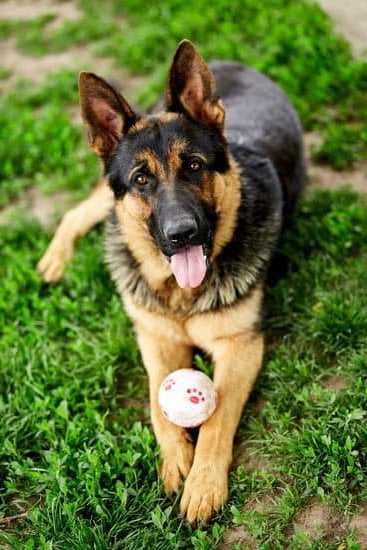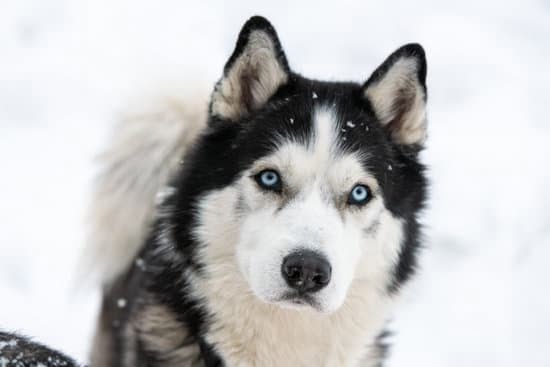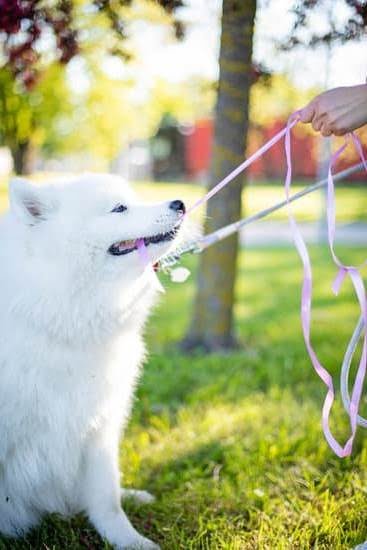Training a duck dog is crucial for achieving hunting success in the field. A well-trained duck dog not only enhances the overall hunting experience but also increases the chances of a successful hunt. From retrieving game to following commands, a properly trained duck dog can make all the difference when it comes to waterfowl hunting.
When it comes to training a duck dog, timing is important. Starting training at the right age can set the foundation for a disciplined and effective working relationship between you and your four-legged companion. But what age should you begin training your duck dog? This article will explore this question and provide guidance on when to start training as well as how to navigate through the different developmental stages of a duck dog’s life.
Understanding the development stages of a duck dog, from puppyhood to adulthood, is essential in determining the ideal age for training. Each stage presents unique challenges and opportunities that impact a dog’s ability to learn and retain new skills.
By understanding these stages, you can tailor your training techniques accordingly and ensure that your duck dog develops into an efficient hunting partner. Whether you have just brought home a new puppy or are considering training an older dog, this article will help guide you in making informed decisions about when and how to start training your duck dog for optimal results.
Understanding the Development Stages of a Duck Dog
Stage 1: Puppyhood
The development stages of a duck dog begin in puppyhood, which is a crucial time for their training. During this stage, it is important to focus on socialization and building a strong foundation for future training. Puppies should be exposed to different environments, people, and animals to ensure they grow up to be well-behaved and confident dogs.
Socializing your puppy with other dogs is critical for teaching them proper manners and developing their social skills. By introducing them to various situations and environments early on, you can help them become less fearful of new experiences and create positive associations with different stimuli.
It is also important during this stage to establish routines and boundaries. Consistent feeding times, designated potty areas, and clear guidelines will help your puppy understand what is expected of them. Basic commands such as sit, stay, come, and lie down can also be introduced during puppyhood through positive reinforcement techniques.
Stage 2: Adolescence
During adolescence, which typically occurs between six months to two years of age, duck dogs often go through a rebellious phase where they might challenge authority or display stubbornness. This is the stage when it becomes crucial to establish leadership and reinforce obedience training.
Consistency is key during this stage. Continue reinforcing basic commands while gradually introducing more advanced obedience exercises. This will help prevent any regression in behavior or training progress.
Additionally, adolescents tend to have abundant energy levels due to their growing bodies. Engaging in regular exercise sessions that include both physical activities (such as retrieving drills) and mental stimulation (such as problem-solving games) can help channel their energy constructively while maintaining their focus on training tasks.
Stage 3: Adulthood
Once your duck dog reaches adulthood (around two years old), they should have a solid foundation of basic obedience skills and retrieval abilities. At this stage, you can focus on fine-tuning their skills and introducing more advanced training techniques.
Adult duck dogs can be trained for more specialized tasks, such as lining or blind retrieves, multi-marking drills, and whistle commands. It is important to challenge them gradually and celebrate their successes to keep their motivation high.
However, it is worth noting that just because your dog has reached adulthood doesn’t mean the learning process stops. Training should remain a lifelong commitment to continuously reinforce behaviors and maintain a strong bond with your duck dog.
Understanding the different stages of development in a duck dog from puppyhood to adulthood is crucial for effective training. By tailoring your training approach to each stage and using positive reinforcement techniques consistently, you can help your duck dog become a well-behaved and skilled hunting companion.
The Factors to Consider in Determining the Ideal Age for Duck Dog Training
Determining the ideal age to start training a duck dog is a crucial decision that can greatly impact the success and development of your hunting companion. While there is no one-size-fits-all answer, several factors should be considered when making this determination.
One of the primary factors to consider is the breed of your duck dog. Different breeds mature at different rates, and their developmental stages can vary significantly. For example, some breeds reach physical and mental maturity earlier than others, while others have longer puppyhoods and slower growth rates. It’s important to research and understand the typical developmental timeline for your specific breed before deciding on an age to begin training.
Another factor to consider is the individual dog’s temperament and personality. Just like humans, dogs have unique personalities that can affect their readiness for training. Some dogs may naturally possess a strong desire to please their owner, making them eager learners from an early age. On the other hand, some dogs may be more independent or stubborn, requiring extra time and patience in their training journey.
The level of socialization your dog has received is also crucial in determining when to start formal training. Socialization plays a critical role in how well a dog adapts to various environments, people, and other animals.
Before embarking on obedience training or advanced skills such as retrieving game, it’s essential that your dog has been properly socialized with exposure to different sights, sounds, and experiences. This will help lay a solid foundation for further training and increase the chances of success in the field.
Considering these factors will help you make an informed decision about when to start training your duck dog. Remember that every dog is unique, so pay close attention to their individual needs and abilities throughout their development stages. By taking all these factors into account, you’ll be able to choose an optimal age to begin training and set your duck dog up for success in its hunting career.
Early Socialization
Early socialization is a critical aspect of training a duck dog and plays a significant role in building a strong foundation for a well-behaved canine companion. Socializing your duck dog from an early age helps them become comfortable and confident in various environments, making them better equipped to handle the demands of hunting. Here are some key aspects to consider when focusing on early socialization for your duck dog:
- Exposure to Different Environments: Introduce your puppy to different environments such as parks, playgrounds, bodies of water, and other outdoor areas. This exposure helps them become acclimated to new sights, sounds, smells, and textures. Gradually increase the complexity and intensity of these environments to challenge their adaptability.
- Meeting New People and Animals: Encourage positive interactions with a wide range of people including family members, friends, neighbors, and strangers. Similarly, provide opportunities for your puppy to meet other dogs or animals in controlled settings. These encounters will help your dog develop proper social skills and prevent fear or aggression towards unfamiliar faces or animals.
- Handling Exercises: Get your puppy accustomed to being handled by gently touching their paws, ears, mouth, tail, and other sensitive areas. This teaches them that touch is not something to be afraid of or react negatively towards. Regular handling exercises also lay the groundwork for future grooming sessions or veterinary examinations as they grow older.
During this stage of training, it is important to pay close attention to your puppy’s body language and reactions during socialization activities. If they display signs of fear or discomfort in certain situations or around certain individuals or animals, take things slow and allow them time to adjust gradually rather than forcing the interaction upon them.
By focusing on early socialization as part of your duck dog’s training journey, you are setting the stage for developing a well-rounded canine companion who is confident in various hunting situations. Remember that each dog is unique, so be patient and tailor your socialization efforts to their individual needs and comfort levels.
Establishing Basic Obedience
Once your duck dog has reached the appropriate age to begin training, establishing basic obedience should be one of the first steps in their training journey. Basic obedience lays the foundation for more advanced skills and ensures that your dog is well-behaved both in and out of the field. This section will discuss the importance of basic obedience training and provide some tips for getting started.
Basic obedience training teaches your duck dog essential commands such as sit, stay, come, and heel. These commands are not only useful in daily life but also crucial during hunting situations. For example, teaching your dog to sit and stay on command will allow you to control their behavior while waiting for waterfowl or when approaching a hunting blind. Recall commands like come are also vital for ensuring that your dog returns promptly with any retrieved game.
Consistency is key when establishing basic obedience in your duck dog. Start with short training sessions using positive reinforcement techniques such as treats or verbal praise. Use clear and consistent cues for each command and reward your dog when they respond correctly. Gradually increase the difficulty level of the exercises as your duck dog becomes more proficient.
| Command | Description |
|---|---|
| Sit | Teaches the dog to sit on command. |
| Stay | Teaches the dog to remain in one place until given further instructions. |
| Come | Teaches the dog to return to you when called. |
| Heel | Teaches the dog to walk politely by your side without pulling. |
Remember, establishing basic obedience is an ongoing process that requires patience and consistency. It is important to continue practicing these commands regularly and reinforcing them in different environments and scenarios. Once your duck dog has mastered basic obedience, they will be ready to move on to more advanced training techniques in preparation for their role as a successful hunting companion.
Introducing Retrieval Skills
One of the most crucial skills for any duck dog is the ability to retrieve game. Retrieval skills are essential in hunting scenarios, as they allow the dog to locate and bring back downed birds. Teaching a duck dog to retrieve game requires consistent training and patience, but with the right techniques, it can be a rewarding process.
When introducing retrieval skills to your duck dog, it is important to start with simple exercises. Begin by using a soft bumper or dummy that mimics the size and weight of a bird. Encourage your dog to pick up the bumper using positive reinforcement techniques such as treats or praise. Start by tossing the bumper a short distance at first and gradually increase the distance as your dog becomes more comfortable with retrieving.
To reinforce the retrieval behavior, use command words like “fetch” or “retrieve” consistently during training sessions. Make sure to reward your dog every time they successfully retrieve the dummy and bring it back to you. This positive association will help them understand what is expected of them during a hunt.
As your duck dog progresses in their retrieval skills, you can introduce more complex scenarios. Practice retrieving from various terrains such as water, thick cover, or elevated platforms. This will help your dog become accustomed to different hunting environments and develop problem-solving abilities.
Remember that every dog learns at its own pace, so be patient and adjust your training methods accordingly. Some dogs may grasp retrieval skills quickly, while others may require more repetition and practice. Consistency in training is key to ensuring that your duck dog becomes proficient in retrieving game.
Advanced Training Techniques
In order to take your duck dog’s skills to the next level, it is important to implement advanced training techniques. These techniques will not only enhance your dog’s abilities as a hunting companion but also increase its overall knowledge and understanding of the tasks at hand. Here are some advanced training techniques that can help you accomplish this:
- Multiple Retrieves: Once your duck dog has mastered basic retrieval skills, it is time to challenge them with multiple retrieves. This involves throwing multiple dummies or decoys in different directions for your dog to retrieve. By practicing this exercise, you will be able to improve your dog’s marking ability and its capacity to remember and complete multiple retrieves without getting distracted.
- Water Blind Retrieves: Water blind retrieves are an essential skill for a successful duck dog. This involves sending your dog on a straight line across water to retrieve a dummy or decoy placed at a distance that they cannot see. To do this effectively, you need to familiarize your dog with different whistle commands and hand signals so that they can follow the correct path even when they cannot see where the retrieve is located.
- Steadiness Training: Steadiness training is crucial for a duck dog as it ensures that they remain focused on their task despite distractions in the field. This could involve training them to sit calmly while shots are being fired or birds are falling nearby. To achieve steadiness, incorporate startle drills and practice sessions in realistic hunting scenarios where distractions such as gun shots or other dogs retrieving are present.
Implementing these advanced training techniques will require patience and consistency from both you and your duck dog. It is important to build upon the foundation of basic obedience and retrieval skills that have been established earlier in your training journey. By gradually increasing the level of difficulty in each exercise, you can challenge your dog’s abilities while simultaneously building their confidence in their skills.
| Advanced Training Techniques | Description |
|---|---|
| Multiple Retrieves | This technique involves throwing multiple dummies or decoys in different directions for your dog to retrieve, improving their marking ability and capacity for multiple retrieves. |
| Water Blind Retrieves | This technique is about sending your dog on a straight line across water to retrieve a dummy or decoy placed at a distance that they cannot see. It enhances their abilities to follow whistle commands and hand signals. |
| Steadiness Training | This technique focuses on teaching your dog to remain focused and calm despite distractions such as gun shots or other dogs retrieving. It involves startle drills and realistic hunting scenarios. |
The Importance of Consistency and Patience in Training a Duck Dog
Consistency and patience are key factors when it comes to training a duck dog. Whether you are teaching basic obedience commands or advanced retrieving skills, maintaining a consistent training routine is crucial for your dog’s success. A well-trained duck dog will greatly increase your hunting success and overall enjoyment of the sport.
One important aspect of consistency in duck dog training is using the same commands and gestures consistently throughout the training process. For example, if you use “sit” as a command for your dog to sit down, make sure you use this command consistently every time you want your dog to sit. Using different commands or gestures for the same action can confuse your dog and hinder their ability to learn and perform tasks effectively.
Another aspect of consistency is setting up a regular training schedule. Dogs thrive on routine, so establishing a consistent training schedule will help them understand what is expected of them and when. Consistent training sessions also provide opportunities for reinforcement and practice, which are crucial for your duck dog’s growth and progress.
Patience is equally important when it comes to training a duck dog. Every dog learns at their own pace, so it’s important to be patient and not rush the process. Training should be done in small increments, focusing on one skill at a time before moving on to the next. Keep in mind that some dogs may take longer than others to grasp certain skills, so it’s important to remain patient and not become frustrated.
During training sessions, it’s important to remain calm and composed even if your dog makes mistakes or doesn’t immediately understand what you’re asking of them. Reacting with anger or frustration can create a negative association with training for your dog, making it more difficult for them to learn new skills in the future.
Potential Challenges and Solutions When Training a Duck Dog at Different Ages
Training a Duck Dog as a Puppy
Training a duck dog as a puppy can present its own set of challenges. One potential challenge is that puppies have shorter attention spans and may struggle to stay focused for long training sessions.
To overcome this, it is important to keep training sessions short, around 5-10 minutes at a time, and make them fun and engaging for the puppy. Using positive reinforcement techniques, such as treats and praise, can help motivate the puppy and make the training experience more enjoyable.
Another challenge when training a duck dog as a puppy is their physical limitations. Puppies are still growing and developing, so it is important not to push them too hard or expect too much from them physically. Activities that are too strenuous can lead to injuries or long-term damage. It is crucial to tailor the training exercises to the puppy’s age and physical abilities.
Training an Adolescent Duck Dog
As a duck dog enters adolescence, new challenges may arise in their training journey. One common challenge during this stage is increased independence and stubbornness. Adolescents may start testing boundaries and challenging authority, leading to disobedience or selective listening. Consistency becomes even more critical at this stage, as it ensures that the dog understands what is expected of them.
Another potential challenge when training an adolescent duck dog is distraction. Adolescence is a time when dogs become more curious about their surroundings and easily distracted by sights, sounds, and smells. Building focus becomes key during this stage of training. Increasing distractions gradually in controlled environments can help teach the adolescent dog how to maintain focus even amidst distractions.
Training an Adult Duck Dog
Training an adult duck dog may come with its own unique set of challenges. One challenge could be addressing any learned behaviors or bad habits that have developed over time if the dog has not received proper training earlier in life. This may require additional time and patience to retrain the dog and correct any undesirable behaviors. It is important to stay consistent, use positive reinforcement, and seek guidance from a professional trainer if needed.
Another challenge when training an adult duck dog is breaking through any preconceived notions or resistance to change. Adult dogs may be set in their ways and resistant to learning new skills or techniques. Patience, persistence, and utilizing training methods that cater to the individual dog’s needs can help overcome this challenge.
By understanding the potential challenges at different stages of a duck dog’s life, trainers can be better prepared to address them proactively. With proper training techniques, consistency, and ongoing patience, these challenges can be successfully navigated for a well-trained duck dog.
Wrapping Up
In conclusion, training a duck dog is crucial for hunting success, as it ensures that your canine companion is well-behaved, obedient, and skilled at retrieving game. Understanding the development stages of a duck dog is important in determining the ideal age to start training. Early socialization should begin as soon as possible to build a strong foundation for a well-behaved duck dog.
Establishing basic obedience is the first step in training a duck dog. This includes teaching commands such as sit, stay, and come, which will be essential during hunting trips. Introducing retrieval skills is also vital, as a successful duck dog must be able to retrieve game both on land and in water.
As your duck dog progresses in its training, advanced techniques can be introduced to take its skills to the next level. This can include more complex retrieves and maneuvers, as well as whistle commands and hand signals. Consistency and patience are key throughout the training process – it takes time for a duck dog to fully develop its abilities.
It’s important to note that there may be challenges when training a duck dog at different ages. Younger dogs may have shorter attention spans and require more frequent breaks during training sessions. Older dogs may already have established behaviors that need to be addressed before progressing in their training.
Frequently Asked Questions
Is 2 years old too late to train a duck dog?
While it is generally recommended to start training a duck dog as early as possible, two years old is not too late to begin training. Dogs are trainable at any age, although the ideal time to start obedience and foundational training for a duck dog is usually between eight weeks and six months old.
Starting at two years of age may require a bit more patience and consistency, but with proper training techniques and dedication, a dog can still become an efficient duck dog. It’s important to focus on building trust, establishing basic obedience skills, and gradually introducing water retrieves to ensure the dog becomes comfortable with hunting tasks.
How do you start training a duck dog?
When starting to train a duck dog, it is essential to lay a solid foundation based on obedience commands such as sit, stay, recall, and walking nicely on leash. These commands establish control over the dog in various situations during hunting trips. Additionally, introducing the concept of retrieving using bumpers or toys should be incorporated into their training regimen from an early stage.
Basic retrieving skills can be reinforced by practicing retrieve drills both on land and in water while gradually increasing distractions like gunfire or simulated bird hunting scenarios. Consistency, positive reinforcement, and repetition are key elements when first training a duck dog.
How long does it take to train a dog for duck hunting?
The time it takes to train a dog for duck hunting can vary depending on several factors including the breed of the dog, previous training experience or exposure to similar activities, individual temperament, and the goals set for the specific hunting tasks expected from them. Generally speaking though, it can take several months up to around one year for a dog to become proficient in basic duck hunting skills.
However, achieving full mastery may take longer depending on the complexity of advanced concepts like blind retrieves or handling multiple decoys. Consistent practice sessions several times per week combined with patience and effective instruction will greatly contribute to successfully training a reliable duck hunting companion.

Welcome to the blog! I am a professional dog trainer and have been working with dogs for many years. In this blog, I will be discussing various topics related to dog training, including tips, tricks, and advice. I hope you find this information helpful and informative. Thanks for reading!





